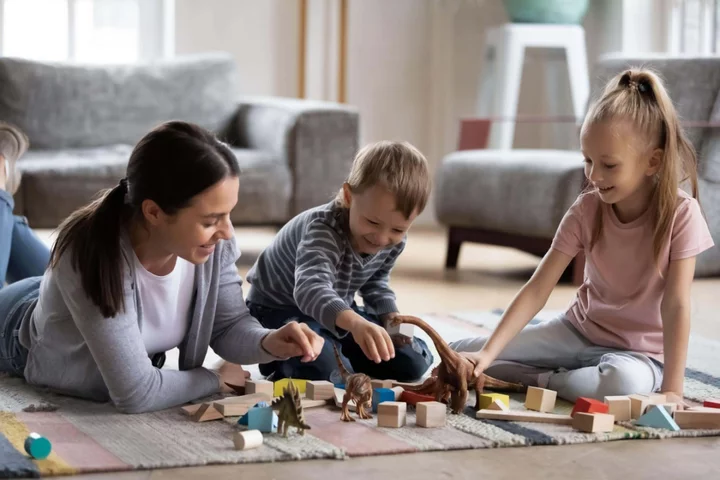Imagination trumps obedience when it comes to what the public thinks are important qualities in children, according to new research.
But while British attitudes have changed in the past three decades, children being taught good manners at home is still highly rated among the majority of people, the wide-ranging survey found.
Some 85% of people in 2022 saw good manners as especially important for children, down only slightly on the 89% who said so in 1990, research by the Policy Institute at King’s College London (KCL) showed.
Good manners are still the quality we want to see most, there has been an increasing emphasis on the importance of hard work, and we’re also among the very most likely to value unselfishness
Professor Bobby DuffyObedience is now far less valued, the analysis of the long-running World Values Survey (WVS) found, with just 11% of those asked last year citing it as being an especially important quality for children to be taught, down from a peak of 50% who felt that way in 1998.
More people now think qualities including independence and hard work are important things for a child to be taught, with the former up to 53% last year from 43% in 1990, and the latter having risen from 29% to 48%.
Around four in 10 (41%) people said determination and perseverance were important, up from 31% three decades earlier, while more than a third (37%) felt imagination was important, up from less than a fifth (18%) in 1990.
Tolerance and respect for others are still among the qualities seen as very important, coming just behind good manners at the top of the list, but it is now seen as less important that a child is taught to be unselfish, the research found.
More than half (56%) of people thought it was especially important for a child to be taught not to be selfish back in 1990, but that fell to 43% last year.
Of the 24 countries surveyed, the UK is among the most likely to value unselfishness in children and among the least likely to value responsibility and obedience, researchers said.
More people in Japan, Norway, Sweden and South Korea felt imagination was very important for children to have, while only five countries (Egypt, Philippines, Morocco, Nigeria and Mexico) were above the UK in valuing good manners in children.
Professor Bobby Duffy, director of the Policy Institute at KCL, said: “The qualities we’d like to see instilled in our children are important signals of what we value as a society – and the very clear message from these long-term trends is the increased importance of imagination and decline in how much we prize straightforward obedience.
“But this doesn’t mean we want a society of self-centred children – good manners are still the quality we want to see most, there has been an increasing emphasis on the importance of hard work, and we’re also among the very most likely to value unselfishness.
“Instead, this is likely to reflect a more general shift towards valuing self-expression, while still wanting our children to be positive and productive contributors to society.”
The 2022 data comes from a sample of 3,056 adults across the UK interviewed by Ipsos through a mix on face-to-face and online survey methods, but for the analysis of trends over time, data is nationally representative for Great Britain only due to a lack of available trend data from Northern Ireland, and is based on surveys of 1,000 or more adults.
Read MoreCharity boss speaks out over ‘traumatic’ encounter with royal aide
Ukraine war’s heaviest fight rages in east - follow live
7 ways you could be damaging your eye health without even realising
Celebrities mingle with royals at glam Vogue World party in London
Sienna Miller bares baby bump at celebrity and royal-studded Vogue event









